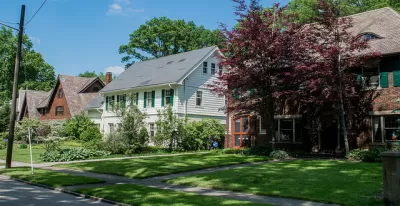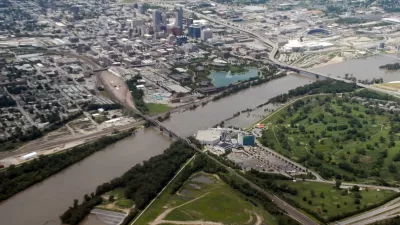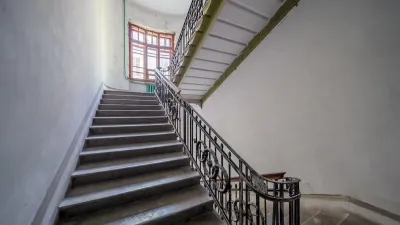A new study shows a troubling reversal of fortunes in many middle-class Black neighborhoods.

A study by Center for Community Progress senior fellow Alan Mallach found alarming rates of decline in the economic growth of Black middle-class neighborhoods in six U.S. cities. As Alan Greenblatt reports in Governing, "Mallach examined more than 300 neighborhoods – all with healthy median incomes in 2000 – and found that a large majority had slipped into poverty by 2018. Fortunes improved in only a handful of neighborhoods; gentrification was barely a factor. In nearly all the neighborhoods, homeownership was down, while vacancy and poverty rates were up."
This troubling trend, writes Greenblatt, has created what Mallach calls "a crisis of non-replacement" that "leads, almost inevitably, to a vicious cycle, sending those neighborhoods into further decline." For better or worse, writes Greenblatt, "the ZIP codes where people grow up determine their trajectory throughout their entire lives," yet Black neighborhoods continue to face discrimination in real estate and public investment. "Homes in predominantly Black neighborhoods are undervalued by $156 billion nationwide, according to the Brookings Institution."
But historically racist policies don't tell the whole story, writes Greenblatt. "Something new has occurred over the past 20 years to drive once-stable neighborhoods into poverty." According to Mallach's study, "[i]n cities where white middle neighborhoods declined, Black neighborhoods declined more. Where white neighborhoods prospered, Black neighborhoods did not share in that prosperity." Greenblatt points to deindustrialization, high unemployment rates, and predatory lending as contributing factors to the decline that occurred in the last two decades.
Two bills now in Congress, the Restoring Communities Left Behind Act and the Neighborhood Homes Investment Act, would create a new grant program and a tax credit aimed at supporting more affordable housing and stabilizing neighborhoods. "There’s no single solution that will work for every struggling neighborhood," writes Greenblatt. "Few will pursue the exact same formula for sprucing up and marketing areas that are on the cusp between growth and decline. But seemingly simple steps can pay major dividends over time, making neighborhoods healthier for residents and more appealing to newcomers."
FULL STORY: Why Black Neighborhoods Continue to Struggle

Study: Maui’s Plan to Convert Vacation Rentals to Long-Term Housing Could Cause Nearly $1 Billion Economic Loss
The plan would reduce visitor accommodation by 25,% resulting in 1,900 jobs lost.

North Texas Transit Leaders Tout Benefits of TOD for Growing Region
At a summit focused on transit-oriented development, policymakers discussed how North Texas’ expanded light rail system can serve as a tool for economic growth.

Why Should We Subsidize Public Transportation?
Many public transit agencies face financial stress due to rising costs, declining fare revenue, and declining subsidies. Transit advocates must provide a strong business case for increasing public transit funding.

Alabama: Trump Terminates Settlements for Black Communities Harmed By Raw Sewage
Trump deemed the landmark civil rights agreement “illegal DEI and environmental justice policy.”

Dear Tesla Driver: “It’s not You, It’s Him.”
Amidst a booming bumper sticker industry, one writer offers solace to those asking, “Does this car make me look fascist?”

A Visual Celebration of Manhattan’s Chinatown Elder Community, Through Food
Lanterns, cafeteria trays, and community connection take center stage in this stunning photo essay.
Urban Design for Planners 1: Software Tools
This six-course series explores essential urban design concepts using open source software and equips planners with the tools they need to participate fully in the urban design process.
Planning for Universal Design
Learn the tools for implementing Universal Design in planning regulations.
City of Santa Clarita
Ascent Environmental
Institute for Housing and Urban Development Studies (IHS)
City of Grandview
Harvard GSD Executive Education
Toledo-Lucas County Plan Commissions
Salt Lake City
NYU Wagner Graduate School of Public Service





























